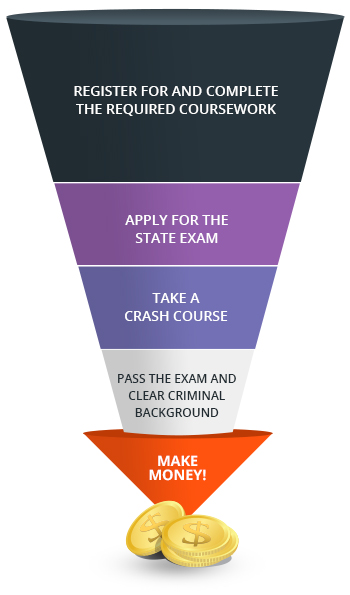But you do not have to pay PMI forever. More on that later PMI can be a quite huge expense, with the average yearly PMI premium varying from. 55 percent to 2. 25 percent of the initial loan amount per year. Your credit rating and loan-to-value ratio will impact your PMI premium. For example, if you buy a home for $200,000 and your PMI is one percent, you will pay $2,000 a year, or about $166 a month (How to get real estate license). Fortunately is that you can ask the loan provider to cancel your PMI once you have paid for the home loan balance to 80 percent of the house's original assessed worth.
If you have an FHA loan, you will require to pay for your home mortgage to 78 percent of your original list prices. Even if gratitude has actually pushed your equity up, you will require to decrease your original primary balance. Normally, most lenders need PMI when it concerns traditional loans with a deposit less than 20 percent. Like anything else, though, there are exceptions to the rule. You'll need to do your research if you wish to forgo paying PMI. Some banks out there offer low down-payment, PMI-free traditional loans. These service providers will waive PMI for borrowers with less than 20 percent down, however you'll pay a greater rates of interest. No, not the body appendage. While fixed-rate home loans have the very same rate of interest and month-to-month payment for the life of the loan, the rate of interest and month-to-month payments on an ARM modification (for this reason the word "adjustable"). ARM interest rates are generally fixed for a duration between 3 and ten years prior to they alter. The brand-new payment is computed using a rate based upon an underlying index like LIBOR (not an essential acronym for home buying, however it means "London Interbank Offered Rate") or the CMT (Constant Maturity Treasury) plus a margin. Comprehending how your rate can alter and how this can increase your payment is really essential.
The agency implements rules like Know Prior to You Owe, which supply borrowers more openness in the mortgage procedure and knowledge about what they can pay for. This ratio is the percentage of your earnings that goes towards paying regular monthly bills. Lenders normally require DTIs listed below a specified percent for you to receive particular loan products. These loans were established during the Great Depression throughout the 1930s and essentially make buying a home more available by offering mortgage assistance and letting debtors receive a loan with a down payment of just 3. 5% (rather of the suggested 20% deposit).
These are month-to-month payments of just interest. Certain home loans permit these lower payments for a specified duration. These loans work best for consumers who expect a substantial bump in income or strategy to refinance or move prior to completion of the interest-only term. Not to be puzzled with smoked salmon, usually consumed with cream cheese and bagels. These are brief letters provided to a lender that describe changes in earnings, safeguard late payments, or summarize your rental history. They can assist you receive your home loan. This ratio is determined by dividing the loan quantity by the house's purchase price.
Lenders have special programs for customers who put down less than 20%. Not a noise a robot makes, however rather a charge that's funded as part of the loan and charged by the government for FHA loans. This unique program allows first-time purchasers to put down less than 20% on their purchase. These payments are the amount due every month on your home loan. Not an unfortunate celebration, however rather your total regular monthly housing cost, which consists of the P&I payment due on your home mortgage and the taxes and insurance coverage on your home. PMI is an additional fee you pay when your down payment is less than 20%.

The Best Strategy To Use For How To Become A Real Estate Agent In Pa
Need to fulfill certain requirements defined by the Dodd-Frank Wall Street Reform and Customer Protection Act, such as loan amount, rate of interest, and underwriting, so they can be acquired by a government-sponsored entity. Not the cousin of a Vespa scooter. More like a map, considering that it requires that you get certain disclosures about closing expenses and settlement procedures at certain times throughout the mortgage procedure. Proof of your income in the type of W-2s, pay stubs, or tax return. Termites. Enough stated. And if you ever find yourself sounding out acronyms while trying to follow in addition to your loan provider, follow this smart advice from Eric Gotsch: "Asking will never be a stupid concern, specifically during something as crucial as the home-buying process.".

If you wish to avoid PMI, you have two choices: concern the table with a 20% down payment or see if you can have the loan provider spend for the PMI. Here's how to accomplish either. A deposit is a required lump-sum grandview las vegas timeshare payment you make at closing to purchase a home - What does under contract mean in https://www.timesharestopper.com/blog/do-timeshare-cancellation-companies-work/ real estate. The amount you pay is a portion of the house's worth and helps contribute to the equity you have in the house from the start and minimizes the quantity you borrow. Many loans do not need a 20% deposit. However, having one will get rid of the PMI and might reduce your monthly payment even more since it'll likewise lower your principal balance.